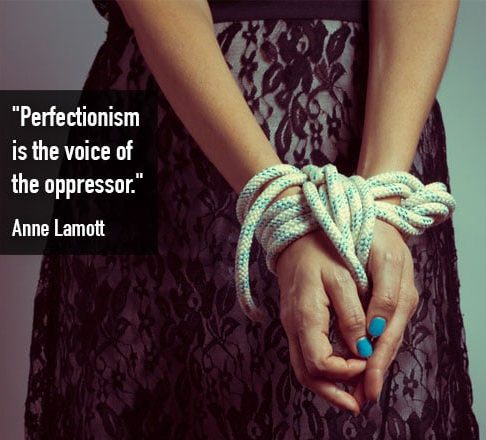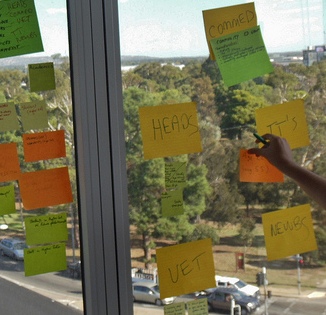Changing This Can Help You Become a Productive Writer
When it comes to being a super-productive writer, your mind-set is the key.
You can’t be your own enemy, because then you’ll just argue and fight with yourself and never get anywhere. Ever try to lose weight? If so, you know what I mean. I am always trying to lose ten pounds. It’s the story of my life. It’s a fight every step of the way. I try meanness, bribery, encouragement—all kinds of methods to psyche myself into not eating that chocolate bar. I am always in an adversarial position with myself when it comes to dieting, and I usually lose because of it.
However, on those rare occasions when I’ve change my attitude to a positive one (“You can do it. See, you went all day without cheating!”), I’ve seen success.
No one’s saying this is easy. Habits and deeply ingrained attitudes about self are very hard to change. But the first step toward change is in looking at the way we talk to ourselves. And then changing the negative talk into positive talk.
Last week I told you about my commuter friend who wrote two hours a day: one hour on the BART to work and one hour on the trip home. He cranked out good material in those two hours—publishing two excellent novels a year for a number of years.
What if he had said to himself, “I just can’t do this. I can’t concentrate enough on the BART to write a good scene”? He may have given up before trying. Or partway through trying.
I used to be unable to write a thing if my space wasn’t completely quiet. This was a real problem! I could not write a word if any noise could be heard: a clock ticking, someone talking fifty yards away, music playing. This issue really impacted my creativity because I was easily distracted and lost focus.
But I was determined to get writing done those times I was stuck at the doctor’s office or Starbuck’s while waiting all day for my car to be serviced. I needed to overcome this. I needed to change my mind-set. I had to start changing the script and talking to myself differently.
Instead of making excuses (“I just can’t work with this noise . . .”), I took on The Little Engine That Could mentality: “I think I can, I think I can . . .” At the end of the book, when the train makes it to the top of the hill, it says, “I knew I could, I knew I could . . .”
I knew it would be hard, and I didn’t know if I would succeed, but I was determined to try. Little by little, I started being able to tune out the sounds around me. Sometimes I used headphones and played white noise, which helped a little. But it was my mind-set that won out.
Now, I can write and edit just about anywhere with any noise around me. Well, maybe not if people are screaming. But I’ve become a more productive writer because I worked on my attitude, faced my excuses, and changed the way I talked to myself. You can do this too.
Productive People Think Positively
So the first step to becoming a super-productive writer is taking a look at what is stopping you from getting there. Realize that being productive is a state of being, a mind-set, and face down your excuses so you can change the way you talk to yourself (talk yourself out of writing).
Changing the way you talk to yourself may be the most important thing you do to become super productive with your writing.
Many writers I know have to write because they have publishing deadlines. That forces them to be productive. But many of them hate the deadlines and end up losing their joy in writing. They often write stuff they hate because of their deadline.
I don’t like deadlines other than the ones I impose on myself (and I think it’s because I know I can ditch the deadline if I truly want to; I have the key to the exit door).
Productive people think differently than unproductive people. You need to challenge yourself and develop that productive mind-set. I’m going to talk next about those habits of productive people, but for now, consider this.
A productive person doesn’t say, “Oh, I have too much to do. I’m so stressed, I can’t think straight. I wish this were different or I didn’t have to . . .”
Here’s the way a productive person thinks:
“I need to do this, this, and that. I’d like to get them done by this date. What do I need to change or reschedule so I can get these things done? In what order? What do I need to research before I can start?”
The words we speak to ourselves either motivate and empower us or they paralyze and discourage us. We can either add or reduce stress by the way we talk to ourselves. This applies to every aspect of our lives, not just our writing.
Be your own best friend, not your worst enemy. Work on speaking positive into your life instead of negative.
Monitoring Your Self-Talk Is the First Step
If you have a mind-set of failure, you’re going to fail. I can’t address this specific topic in depth in this discussion on productivity. So if you have a real problem with your attitude—if you’re often negative and wading through oceans of self-recrimination and feelings of failure—you’ll probably need more than a regular pep talk about adopting a positive attitude.
But in general, observing and catching yourself when thinking in negative ways is the first step toward change. Identify the negative self-talk and switch it out with positive, practical, and proactive statements. That’s how you thwart all the slings and arrows you throw at yourself.
Two other big issues that we’ll be looking at are time management and time thieves. But I hope you can see that before you can tackle just about any issue related to productivity, you have to look at your attitude. If you are making excuses and thinking negatively about your writing goals, you aren’t going to get anywhere. You have to want that dream you see in your head.
How much do you want it? Only you can answer that.
And I believe that if you can honestly say you want it and are willing to work for it, you can get there by applying all the things you’ll be learning here.
For now, ask yourself this one question: What one thing could I change right now that would have the biggest impact on my productivity?
Write this down, think about why this is your biggest obstacle, and how you might change your self-talk about it, stop making excuses, and push it aside enough to get past yourself and closer to becoming a super-productive writer.
Want to share your thoughts on this? Gain any helpful insights as a first step to being super productive?












This post has given me so much insight on my own writing. I’m currently stressed due to not working and trying to finish school. But, I put out a book in December and I must say that I am proud. I need to give myself more credit. However, I am learning to set my priorities. I will write every day.
I really appreciate your article. Yes, if I’m honest, my feeling about time — or the perceived lack of it — is what bogs me down so often. I should tell myself one small thing accomplished is better than one great thing aspired to but never started.
Wow, Susanne! Did you write this just for me? 🙂 I haven’t been productive in so long. I seem to be a terrible procrastinator. I really needed this kick in the pants! I think I have been expecting failure from myself so it stopped me in my tracks. Thank you.
This is a big problem with so many writers, and I’ll be posting a lot of info on this throughout this series, so hope it all helps inspire you and will give you suggestions to work around resistance!
Thanks Susanne – I’ve discovered that I have a bank account for the writing time I use. I make a sweet deposit every time I write, regardless of the time used. However, I had not realized that this sweet feeling always had been hanging around waiting for an account to be opened. It was a classic epiphany. Now, every time something infringes on my writing time, my-good-feeling deposit slip yells, and I’m reminded of that sweet feeling. Sounds kinda elementary, but I love it.
What a great reminder! When I’m dieting (because I’m always trying to lose 10 lbs too!) I always start with water. I’m proud of myself for drinking water, and I don’t get down on myself about anything else. I need to do that with my writing practice too. Find some baseline habit that’s super easy and makes me proud, so I can grow from there.
Certainly can’t be mad at this. Positivity is big with me, even though it’s hard to get 24/7. I’m usually fairly productive but right now I’m working on overcoming some malaise as I deal with a family issue that’s somewhat upset the cart. It’s hard to focus on the work part, but it’s not the most important thing at the moment. Being positive and finding the good out of the change is much more important.
But when I get it back… watch out for how much I’ll be writing! 🙂
A good attitude! We can’t always be positive. Life throws us hardballs at times. But when we can make that adjustment, it can only help.